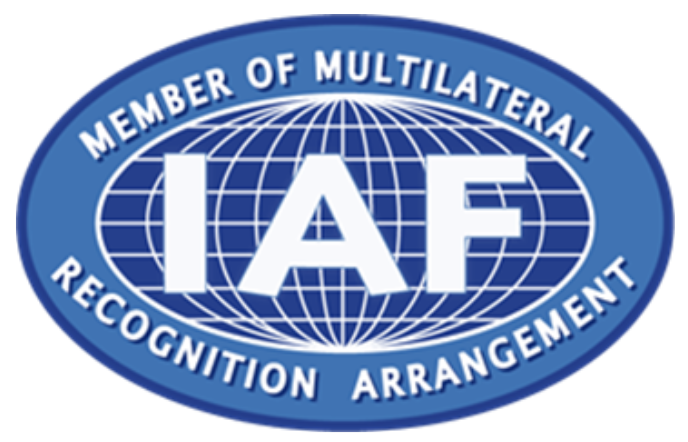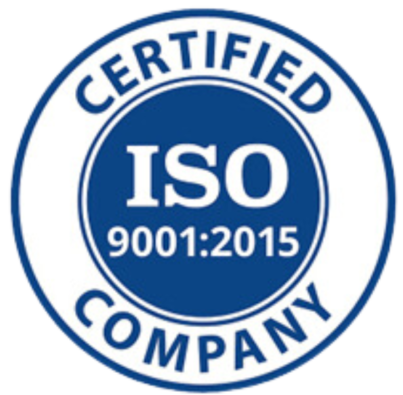Talk To Our Cyber Expert For Free.
SAR Compliance Audit





Overview : Specific Absorption Rate Compliance Audit
The Suspicious Activity Reporting (SAR) compliance audit is designed to assess an organization’s adherence to the regulations and requirements related to reporting suspicious activities. The goal of the audit is to ensure that organizations have effective processes and controls in place to identify and report suspicious transactions or activities as mandated by regulatory authorities.
ISO 27001
What is ISO 27001?
ISO 27001 is a globally recognized security standard that provides a framework for establishing an effective Information Security Management System (ISMS). It is part of the ISO/IEC 27000 series of standards published by the International Organization for Standardization (ISO) and International Electrotechnical Commission (IEC).
The ISO 27001 standard focuses on technical risk management controls and helps organizations establish, implement, operate, monitor, review, maintain, and improve their ISMS. It takes a risk-based and technology-neutral approach, allowing organizations to tailor their security controls according to their specific risks and needs.
Rather than prescribing a fixed list of controls, ISO 27001 provides a checklist of measures to consider and offers best practice recommendations outlined in ISO 27002. This flexible approach enables organizations to implement controls that align with their unique security requirements.
Even if your organization is not pursuing full ISO 27001 certification, familiarizing yourself with the standard and its controls is essential for following security best practices. Understanding the guidelines can help ensure that your organization adopts effective security measures and safeguards sensitive information.
CONTROLS
ISO 27001 Annex A controls
- Risk Mitigation: Systematically identifying and assessing risks enables organizations to implement appropriate controls to mitigate those risks effectively.
- Compliance Assurance: Adhering to ISO/IEC 27001 requirements helps organizations demonstrate compliance with information security standards and regulatory obligations.
- Continual Improvement: The ongoing management process encourages organizations to continually assess and adapt their security controls to address new and emerging risks.
- Stakeholder Confidence: By effectively managing information security risks, organizations can inspire confidence in their customers, partners, and stakeholders, building trust and credibility.
METHODOLOGY
Methodology for SAR Compliance Audit
The SAR compliance audit follows a structured methodology to assess an organization’s adherence to the regulatory requirements related to suspicious activity reporting. The methodology includes the following steps:
Regulatory Assessment
Documentation Review
Compliance Testing
Data Analysis
Gap Analysis and Remediation
Reporting and Recommendations
Ongoing Compliance Support
Get a quick quote
Benefits

Enhanced Risk Management

Continuous Improvement

Stakeholder Trust

Improved Security Posture

Regulatory Compliance
Our Approach for SAR Compliance Audits
- 01. Regulatory Expertise
- 02. Customized Audit Methodology
- 03. Risk-Based Approach
- 04. Documentation Review
- 05. Compliance Testing
- 06. Data Analysis
- 07. Gap Analysis and Recommendations
- 08. Reporting and Follow-up
We have a team of experienced professionals who possess in-depth knowledge of SAR regulations, industry best practices, and the evolving landscape of financial crimes. Our experts stay updated with the latest regulatory requirements to ensure accurate and comprehensive audits.
We tailor our audit approach to meet the specific needs of each organization. We work closely with our clients to understand their unique SAR compliance requirements, internal processes, and risk profiles. This allows us to design a customized audit methodology that addresses their specific challenges and ensures a thorough assessment.
Our audit methodology is risk-based, focusing on areas of higher risk and importance. We prioritize the assessment of critical controls, suspicious activity monitoring systems, reporting processes, and data integrity to ensure effective risk mitigation and regulatory compliance.
We conduct a detailed review of the organization’s SAR-related policies, procedures, and documentation. This includes evaluating the adequacy and effectiveness of SAR reporting processes, record-keeping practices, training materials, and internal controls. We identify any gaps or deficiencies and provide recommendations for improvement.
We perform comprehensive compliance testing to validate the implementation and effectiveness of SAR controls. This involves reviewing a sample of reported suspicious activities, analyzing the accuracy and completeness of the reports, and assessing the organization’s ability to identify and report suspicious activities in a timely manner.
We leverage advanced data analysis techniques to analyze relevant transaction data and identify patterns, trends, and anomalies that may indicate potential suspicious activities. This helps in assessing the organization’s monitoring systems and the accuracy of reported activities.
Based on the findings from the documentation review, compliance testing, and data analysis, we provide a comprehensive gap analysis report. We highlight areas of non-compliance, weaknesses, or areas for improvement in the organization’s SAR compliance program. Our report includes actionable recommendations to enhance the organization’s SAR controls and reporting processes.
We prepare a detailed audit report that summarizes our findings, recommendations, and suggested remedial actions. Our report provides a clear understanding of the organization’s SAR compliance status, identifies areas for improvement, and outlines steps to strengthen the SAR program. We also offer follow-up support to assist with the implementation of recommended actions and address any additional queries or concerns.
WHY US?
Why do organizations need it?
- Risk Mitigation
- Reputation Protection
- Operational Efficiency
- Continuous Improvement
Frequently Asked Questions (FAQ) for SAR Compliance Audits
SAR compliance refers to the adherence to regulatory requirements related to Suspicious Activity Reports (SARs). It involves implementing effective policies, procedures, and controls to detect, investigate, and report suspicious activities that may indicate money laundering, terrorist financing, or other financial crimes.
SAR compliance obligations typically apply to financial institutions, such as banks, credit unions, money service businesses, securities firms, and other entities involved in financial transactions. The specific requirements may vary depending on the jurisdiction and the nature of the business.
The purpose of a SAR compliance audit is to assess the effectiveness and adequacy of an organization’s SAR compliance program. It involves evaluating the implementation of policies, the accuracy and timeliness of SAR reporting, the quality of internal controls, and the overall compliance with regulatory requirements.
Yes, organizations can engage external auditors or consulting firms with expertise in SAR compliance audits to conduct independent assessments. External assistance can provide an objective perspective, specialized knowledge, and ensure adherence to industry best practices and regulatory requirements.
The frequency of SAR compliance audits may vary based on regulatory requirements and risk assessments. Generally, organizations should conduct regular audits to ensure ongoing compliance and to identify any gaps or deficiencies that need to be addressed.
Non-compliance with SAR regulations can have serious consequences for organizations, including regulatory penalties, reputational damage, legal consequences, and loss of customer trust. It is essential to maintain robust SAR compliance measures to mitigate these risks.
The duration of a SAR compliance audit depends on various factors, including the size and complexity of the organization, the scope of the audit, and the availability of relevant documentation. Typically, a SAR compliance audit can range from several weeks to a few months.
If deficiencies or gaps are identified during a SAR compliance audit, organizations should take prompt action to address them. This may involve implementing corrective measures, enhancing internal controls, providing additional training to employees, or updating policies and procedures to ensure compliance.
